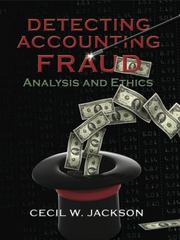Question
In your response to your peers, discuss actions and consequences that should be taken in response to a violation of their selected principle. Use the
In your response to your peers, discuss actions and consequences that should be taken in response to a violation of their selected principle. Use the following questions to help guide your responses:
- What actions or strategies could you or others take to remediate the ethical issues?
- What are some repercussions of not abiding by your peer's selected principle from a legal, business, or general professional perspective?
Peers post
I chose "public interest" for this discussion. In the context of accounting, I would describe this as not putting yourself or company executives over the general population (shareholder, customers, and the public) and not only being transparent, but most importantly, being accurate and honest with the balance sheets.
This principal brings value to the company because if you get caught putting your own interests ahead of others, and report revenue that your company never got, that will lead to major lawsuits meaning money that you will have to pay in a potential settlement and now your company also has a bad name and people do not want to work for you, or with you. The clients is a big one for this principal (also investors) because they are putting trust in your company and employees to be responsible and report numbers that accurately represent where the company is at financially, but when accountants put their own interests ahead of the clients and shareholders, they could be putting their money in a company that they thought was doing great financially, but in reality they are hemorrhaging money.
I think one example would be if an employee had a friend or family member who was an investor in their company and knew the company would be reporting their earnings soon, so they asked the employee for some information that was not yet available to the public that would determine what they wanted to do with the stock. An ethical response to this problem would be to ignore them, or inform them that this is not information that they can give out, because they have a duty to the whole public, not just one or two people. One reason they might be tempted is if they were offered a personal interest or "If you tell me this information I will give you a certain percentage of the stocks value".
Step by Step Solution
There are 3 Steps involved in it
Step: 1

Get Instant Access to Expert-Tailored Solutions
See step-by-step solutions with expert insights and AI powered tools for academic success
Step: 2

Step: 3

Ace Your Homework with AI
Get the answers you need in no time with our AI-driven, step-by-step assistance
Get Started


